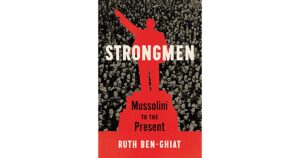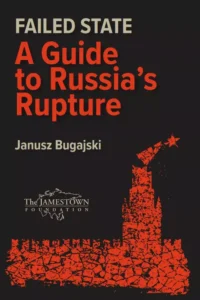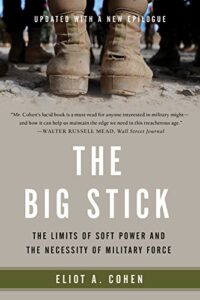Шествие в Москве против войны. Храбрые, лучшие!
pic.twitter.com/njAHbSAiOp
— Соболь Любовь (@SobolLubov) September 21, 2022
Russia’s opposition on Wednesday called for protests against President Vladimir Putin after he ordered the mobilization of 300,000 reservists for what Kremlin foe Alexei Navalny said was a failing criminal war, Reuters reports.
“It is clear that the criminal war is getting worse, deepening, and Putin is trying to involve as many people as possible in this,” Navalny said in a video message from jail (below) recorded and published by his lawyers. “He wants to smear hundreds of thousands of people in this blood.”
Meanwhile, the Vesna opposition movement called for nationwide protests on September 21, RFE/RL adds, saying “Thousands of Russian men — our fathers, brothers and husbands — will be thrown into the meat grinder of the war. What will they be dying for? What will mothers and children be crying for?”
The call came as President Biden accused Russia of “shamelessly violating” the United Nations charter during an address before the U.N. General Assembly on Wednesday, decrying the war in Ukraine and excoriating Russian President Vladimir Putin for hinting he could use nuclear weapons, The Wall Street Journal reports.
Navalny in court right now: Putin’s criminal war of aggression is getting worse. He wants to smear blood on as many people as possible. To prolong his personal power, he’s tormenting the neighboring country and throwing even more Russians into the meat-grinder that is this war pic.twitter.com/Sp87nBSkwu
— Кира Ярмыш (@Kira_Yarmysh) September 21, 2022
Despite unprecedented repression by the Russian authorities against anyone who doubts the necessity of President Vladimir Putin’s war in Ukraine, more citizens – such as the country’s main pop star, Alla Pugacheva – are finding the courage to speak out, adds analyst Kseniya Kirillova. However, even the new round of repressions is powerless in influencing certain processes now occurring in Russian society, she writes for Eurasia Daily Monitor:
Even sociologists loyal to the Kremlin note that “the overwhelming majority of citizens … demonstrate increasing political neutrality,” and the number of people trying to distance themselves from Moscow’s military agenda is steadily growing….This does not mean that these people will begin to openly oppose the war. However, they clearly do not support a general mobilization and might more actively express their disagreement if the war affects them directly. (Tgstat.ru, September 15).
 The Kremlin is driving itself into a trap between a majority unwilling to fight and a radical minority demanding more blood and new victories, Kirillova adds. In the current environment, Putin is unable to meet the either group’s expectations.
The Kremlin is driving itself into a trap between a majority unwilling to fight and a radical minority demanding more blood and new victories, Kirillova adds. In the current environment, Putin is unable to meet the either group’s expectations.
Putin’s war on Ukraine reveals the dysfunctions of authoritarian rule, argues Ruth Ben-Ghiat, author of “Strongmen.”
Inner sanctums embody the particular culture of fear and servility that autocracy fosters and how it prevents leaders from hearing the truth of a situation, she writes. Over time this can lead an autocrat to believe his own propaganda and act on his worst impulses, resulting in military, economic, or diplomatic setbacks that can eventually destabilize his authority at home.
 Opposition exiles must realize that trust in any Russian leaders regardless of professed ideology has been severely damaged as a result of the massive attack on Ukraine and the muted reaction of the vast majority of the Russian population, says Janusz Bugajski, a senior fellow at the Jamestown Foundation and the author of Failed State: A Guide to Russia’s Rupture. Limiting Russia’s military capabilities must be a priority so they no longer pose a threat to neighbors, and any hope of reconciliation hinges on war crimes trials for Russia’s leaders and massive war reparations from Moscow, he contends:
Opposition exiles must realize that trust in any Russian leaders regardless of professed ideology has been severely damaged as a result of the massive attack on Ukraine and the muted reaction of the vast majority of the Russian population, says Janusz Bugajski, a senior fellow at the Jamestown Foundation and the author of Failed State: A Guide to Russia’s Rupture. Limiting Russia’s military capabilities must be a priority so they no longer pose a threat to neighbors, and any hope of reconciliation hinges on war crimes trials for Russia’s leaders and massive war reparations from Moscow, he contends:
The Free Nations of Post-Russia Forum can address such questions by presenting a vision of Russia than no longer threatens its neighbors. It assembles emigre activists from several nations and regions of northwest Russia, including Ingria, Karelia, and Kaliningrad. Other gatherings have focused on the Middle Volga, Siberia, and the North Caucasus. Unfortunately, liberal opposition exiles have neglected these regional and national activists whose importance will grow as Russia’s failures intensify.
 The alternative to the cornering and humiliation of Russia would be for the United States and its allies to halt or reduce their aid to Ukraine and impose a stalemate. But that would mean delivering a victory to Russia, notes Eliot A. Cohen, a professor at The Johns Hopkins University School of Advanced International Studies, and the author most recently of The Big Stick: The Limits of Soft Power and the Necessity of Military Force.
The alternative to the cornering and humiliation of Russia would be for the United States and its allies to halt or reduce their aid to Ukraine and impose a stalemate. But that would mean delivering a victory to Russia, notes Eliot A. Cohen, a professor at The Johns Hopkins University School of Advanced International Studies, and the author most recently of The Big Stick: The Limits of Soft Power and the Necessity of Military Force.
In three or four years, a rearmed Russia, thirsting for revenge for the losses and defeats it has suffered, would do the same thing again, and against a dispirited Ukraine. If that were to happen, it would be an utter disaster for American policy and Western security, he writes for The Atlantic:
The error lies in thinking that one can titrate the application of violence to achieve exquisitely precise results. To the extent that the West continues to attempt to do so, it will merely ensure more mass graves like those of Bucha and Izyum, and more soldiers lying limbless or in the burn wards of Ukrainian military hospitals. So now, as ever, Churchill’s observation that courage is the virtue that makes all others possible holds, particularly for the leaders of the embattled West. Zelensky could not put it better himself.







